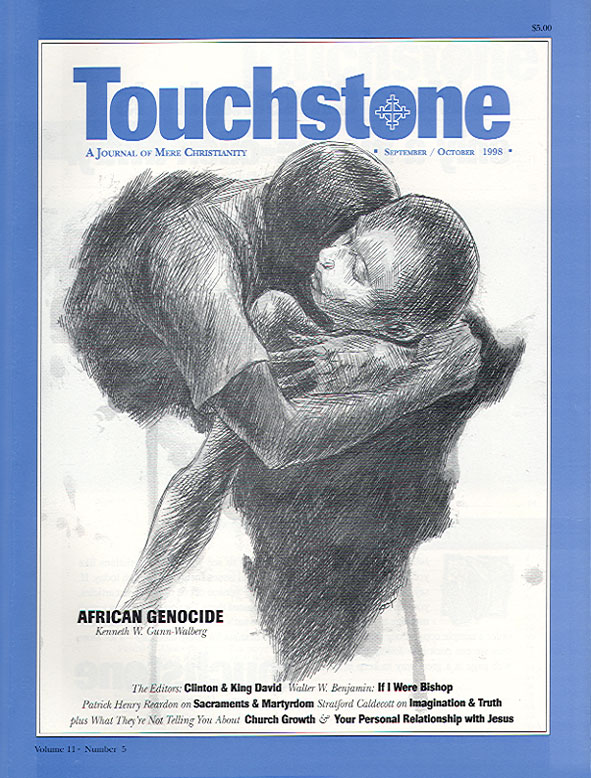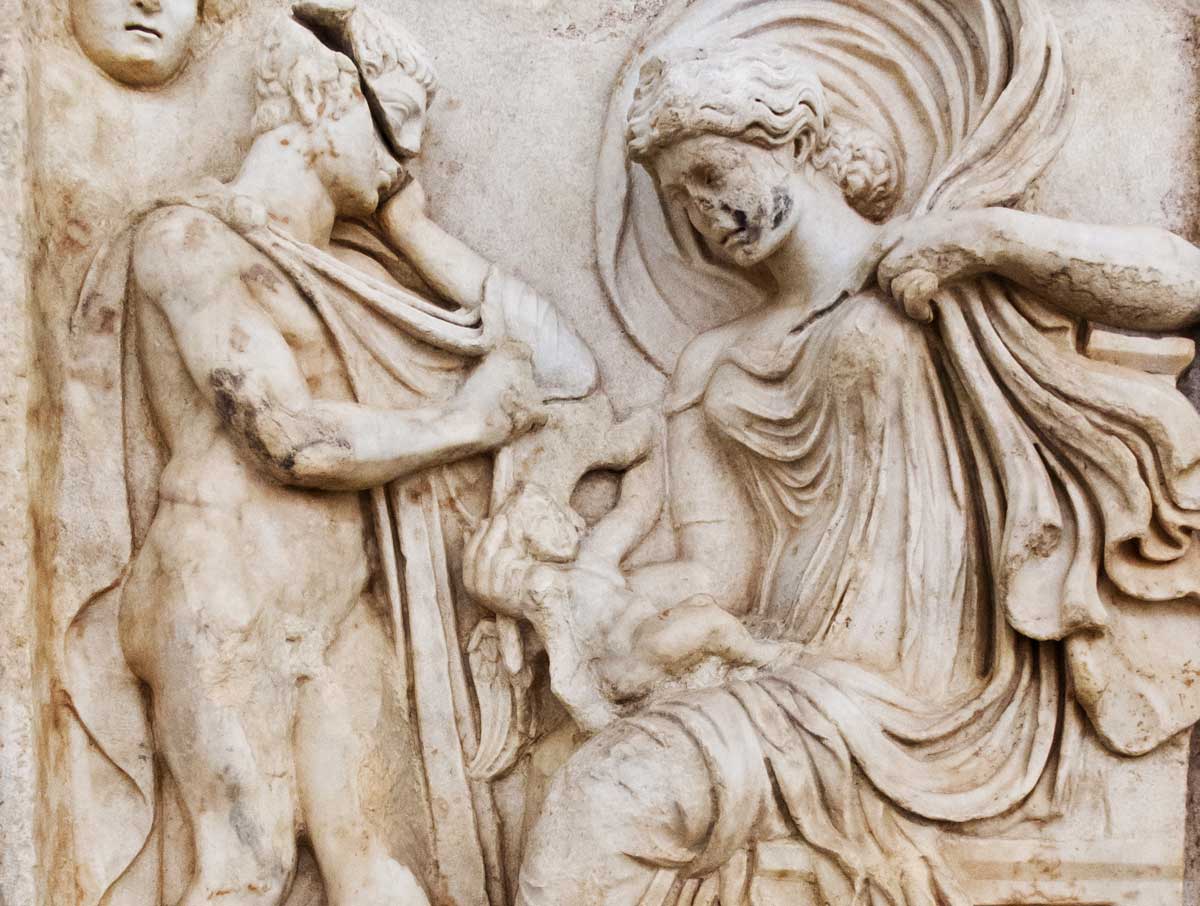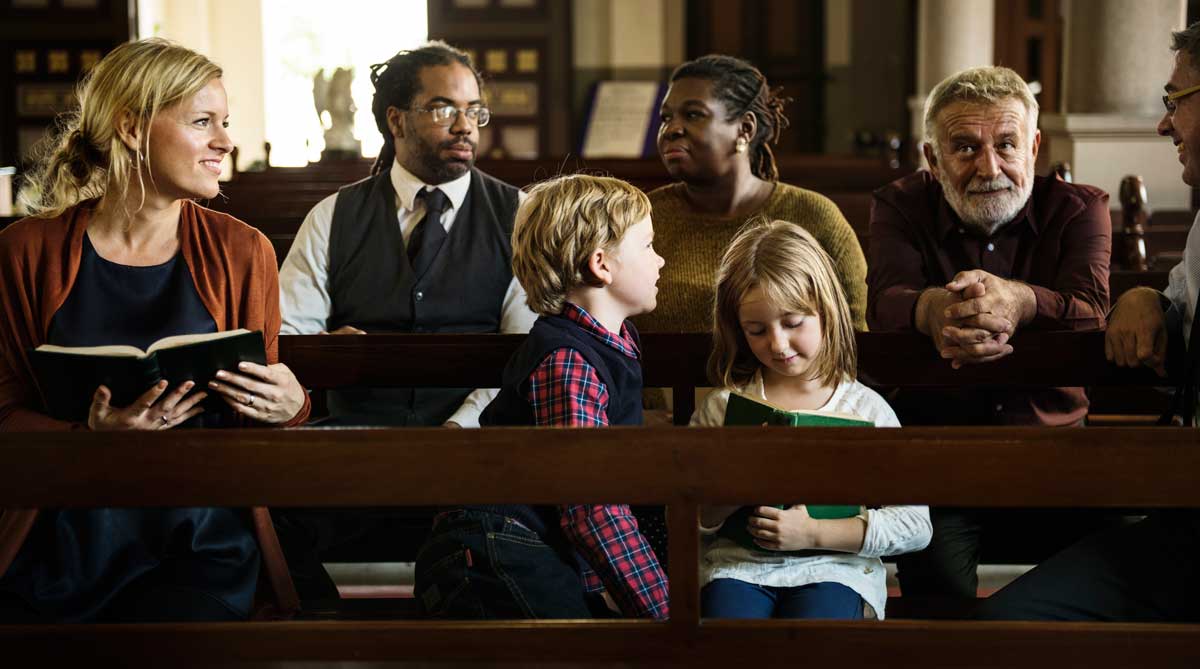Chief Shoefoot’s Rebuke
Preston Jones on the Multicultural Gospel
In the fall of 1997 not a few North American academics and their students had some of their assumptions challenged by a physically unimposing though philosophically profound man named Chief Shoefoot, a Yanomamö tribal leader, former warrior, and shaman. Speaking through an interpreter at numerous colleges and universities in the United States, Shoefoot related what life was like in his village in the Venezuelan rain forest before the Christian missionaries arrived. The picture he painted of the incessant violence that prevails in an unregenerate Yanomamö culture of revenge is not appealing.
Shoefoot said that the spirits served by Yanomamö villagers who have not accepted Yai Pada, the God of the Bible (literally, the Great Spirit), are bloodthirsty, and they are appeased through rape and murder wrought in vengeance. “When someone died, their relatives would cremate the body and drink the ashes,” Shoefoot recalls. “And they would ask me who the evil shaman was from another village who had caused their misfortune. Sometimes I would understand who it was who had done this, so I would call the men to take up clubs and arrows and raid the village where the evil shaman lived. We would kill as many men as we could, rape the women, and take some back to our village. Then we knew we might be raided ourselves, so I would advise everyone to move out into the forest on a trek of many days to escape the dangers.” But danger could not usually be long avoided, so revenge begat revenge. And Shoefoot’s village was dying.
But since the time most of the people in his village exchanged the worship of local spirits for that of Yai Pada, Shoefoot’s village has enjoyed peace. It is also growing again and, relative to other Yanomamö villages that persist in the old ways, it is prospering. For now that his villagers need not spend much of their time making war, they are able to devote themselves to growing food, raising cattle, building better homes, and better defending themselves against mosquitoes. Shoefoot says he wishes more Christian missionaries would go and share their faith with the Yanomamö who live in other villages. For because of the incessant warfare that continues between different tribes who have not yet accepted Yai Pada, his people—the people he loves—are slowly but surely destroying themselves.
As one might imagine, not a few of Shoefoot’s American listeners took him to have been duped by educated Westerners. “Strike one more victory for imperialism,” said one student at a lecture I attended at Sonoma State University in northern California. The sight of modestly educated young people contradicting Shoefoot in the name of preserving indigenous cultures and celebrating diversity was peculiar, really, as was the clucking of some anthropologists who seem to think they know more about Yanomamö culture than Yanomamös do—and Shoefoot had more than a few terse words for these people. He said he wishes non-Christian anthropologists would leave the Yanomamö alone; for in discouraging young Yanomamö from turning to a “Western” religion—never mind that three-quarters of the world’s Christians live outside the industrialized West and that Christianity has its roots in the Orient—many anthropologists in fact encourage the Yanomamö to continue along the path to cultural suicide. And he warned that, at any rate, young Yanomamö are growing tired of the anthropologists and that those who tacitly approve of Yanomamö violence could someday find themselves on the sharp end of a spear.
Perhaps most arresting were Shoefoot’s exhortations. Uninhibited by any desire to seem chic, this literal prophet from the wilderness announced that the same evil spirits that lead tribesmen under their influence to destroy life in Yanomamö villages are also at work in North America. He said that Halloween was demon worship and that he senses greater spiritual danger on American streets than he does in the jungle. “I can see evil spirits’ footprints all over this place, but you don’t see them,” he said. And he warned that one of the great dangers North Americans face is spiritual laziness, brought on by comfort, affluence, and intellectual pride.
We in the West have come a long way in our thinking about missions since the days when some thought it was just to enslave the uncivilized in order to, as it were, beat the barbarism out of them. It is clear that Shoefoot was won to the Christian faith largely through the love and self-sacrifice of those who shared their faith with him.
Readers who want to read more about the conversion of some Yanomamö, including Shoefoot, can turn to: Mark Andrew Ritchie, Spirit of the Rainforest: A Yanomamö Shaman’s Story (Chicago: Island Lake Press, 1996).
Preston Jones is currently finishing his doctoral dissertation on the Bible in Canadian public life (University of Ottawa) with a fellowship from the Pew Program in Religion and American History (Yale University).
Preston Jones teaches history at John Brown University.
bulk subscriptions
Order Touchstone subscriptions in bulk and save $10 per sub! Each subscription includes 6 issues of Touchstone plus full online access to touchstonemag.com—including archives, videos, and pdf downloads of recent issues for only $29.95 each! Great for churches or study groups.
Transactions will be processed on a secure server.
more from the online archives
calling all readers
Please Donate
"There are magazines worth reading but few worth saving . . . Touchstone is just such a magazine."
—Alice von Hildebrand
"Here we do not concede one square millimeter of territory to falsehood, folly, contemporary sentimentality, or fashion. We speak the truth, and let God be our judge. . . . Touchstone is the one committedly Christian conservative journal."
—Anthony Esolen, Touchstone senior editor










